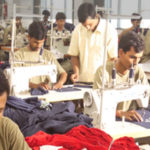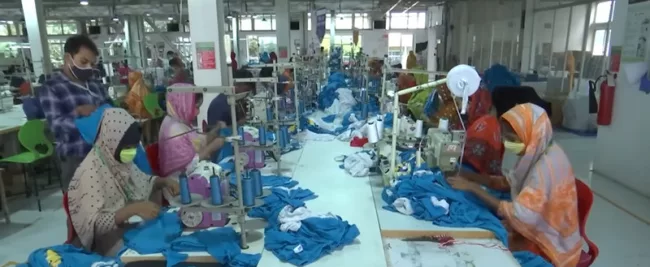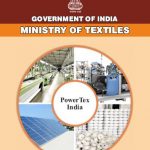
Coimbatore, 6.12.2023
Southern spinning sector seeks Central and State Governments’ urgent relief measures to sustain the jobs of one million workers and the livelihood of their families
The Southern States, particularly Tamil Nadu, Andhra Pradesh and Telangana that account around 55% of the spinning capacity in the country have been facing a long-drawn recession during the last 18 months due to numerous external factors particularly the global economic slowdown and sluggish demand in the domestic market. The 11% import duty levied on cotton and the expensive man-made fibre and filament yarns added fuel to the situation and drastically reduced the exports of yarns, fabrics, garments and made-ups. The cotton yarn exports from the country decreased by 56% during 2023-24 (April to September 2023) when compared to 1304 mn. Kg. exported during FY21-22.
The steep increase in the power cost ranging from Re.1/- up to Rs.2.50 per unit (MD charges for HT industrial units from Rs.350 per KVA to Rs.562 per KVA and for LT and LTCT industrial units the fixed charges is increased from Rs.35 to R.77-562 per KW in various loads, and levy of 25% peak hour charges for LT and LTCT industries as like HT industries), greatly affected not only the global competitiveness but also in the domestic market when compared to the States like Maharashtra, Gujarat and Madhya Pradesh that offer huge incentives under their new State textile policies. The high volatility in cotton and yarn prices and the new capacities added in the aforesaid States and drop in exports have made the production capacity surplus and affecting the existing production capacities in Southern States. Considering the textile industry scenario, the Ministry of Textiles had recommended extending one year moratorium for the repayment of loans and extending adequate financial measures on a case-to-case basis based on the representations made by the spinning sector in across the country.
Under these circumstances, the long-drawn Ukraine-Russia war, recent Israel-Hamas war and the MMF QCO related issues caused severe financial stress in several countries and further reduced the demands for all the spinning mills across the country particularly the Southern States.
Import surge across the value chain at an abnormal degree, more specifically fabrics, garments and made ups from China, Bangladesh, Vietnam and Sri Lanka is dampening the core Schemes implemented by the Central Government to promote indigenous-quality manufacturing, in addition to paving way for achieving the targeted US $ 350 billion textile business size (US $ 250 billion domestic market and US $ 100 billion export market). There has been an increase in import to the tune of 40% cotton fibre, 149% viscose fibre, cotton yarn 442%, polyester yarn 46%, viscose yarn 204%, polyester fabrics 46%, garment 44%, made-ups 27% respectively.
Permitting procurement of import dependent fibres, both cotton (ELS variety Pima & Giza) and speciality MMF fibres for catering to the nominated export business is a mode to garner our share in the international market.

Dr. S.K. Sundararaman
In a press release issued here today, Dr. S.K. Sundararaman, Chairman, SIMA has stated that an urgent virtual meeting of the Office Bearers of all associations representing spinning mills and open-end spinning mills was held to discuss and decide the strategies for mitigating the unprecedented crisis. He has stated that the associations have jointly appealed to the Hon’ble Chief Ministers of Tamil Nadu, Andhra Pradesh and Telangana to roll back the power tariff hike brought in the recent years for a period of one year as a major relief measure from the State Government. They have also appealed the State Government to exempt 3rd party power and IEX power purchase from cross subsidy surcharge and additional surcharge so as to reduce the burden for the DISCOMS. Dr. Sundararaman has stated that the spinning mills’ associations have appealed the Hon’ble Prime Minister to:
- Extend one-year moratorium for repayment of the principal loan amount;
- Convert three-year loans under ECLGS into six-year term loans;
- Extend necessary financial assistance to mitigate the stress on working capital, on a case-to-case basis;
- Remove 11% import duty on cotton
- Address the QCO related issues like exemption for fibre/filament yarns TT that are not manufactured in India, exemption of raw materials imported through advance authorization scheme, provide adequate testing facilities, reduce BIPS certification and testing charges, etc.
The Office Bearers of the Associations representing spinning sector have appealed to all State Governments across the country to suspend giving any incentive for the spinning capacity expansion or new investment till the oversupply issue is addressed. This is essential to prevent the closure of large-scale spinning mills already created in the country.
SIMA Chairman has stated that all the Office Bearers of the Spinning mills associations have proposed a stoppage of production initially for a period of one week to sensitize the Government and the urgent need for the aforesaid relief measures. They have also advised the spinning sector across India to cut down production by 35% or one shift to avoid distress sale and reduce the losses.
The Office Bearers from The Southern India Mills Association (SIMA), Tamil Nadu Spinning Mills Association (TASMA), South India Spinners Association (SISPA), Indian Spinning Mills Association (ISMA), Recycle Textile Federation (RTF), Rajapalayam Spinners Forum (RSF), Andhra Pradesh Textile Mills Association (APTMA) and Telangana Spinning & Textile Mills Association (TSTMA) participated in the meeting.





